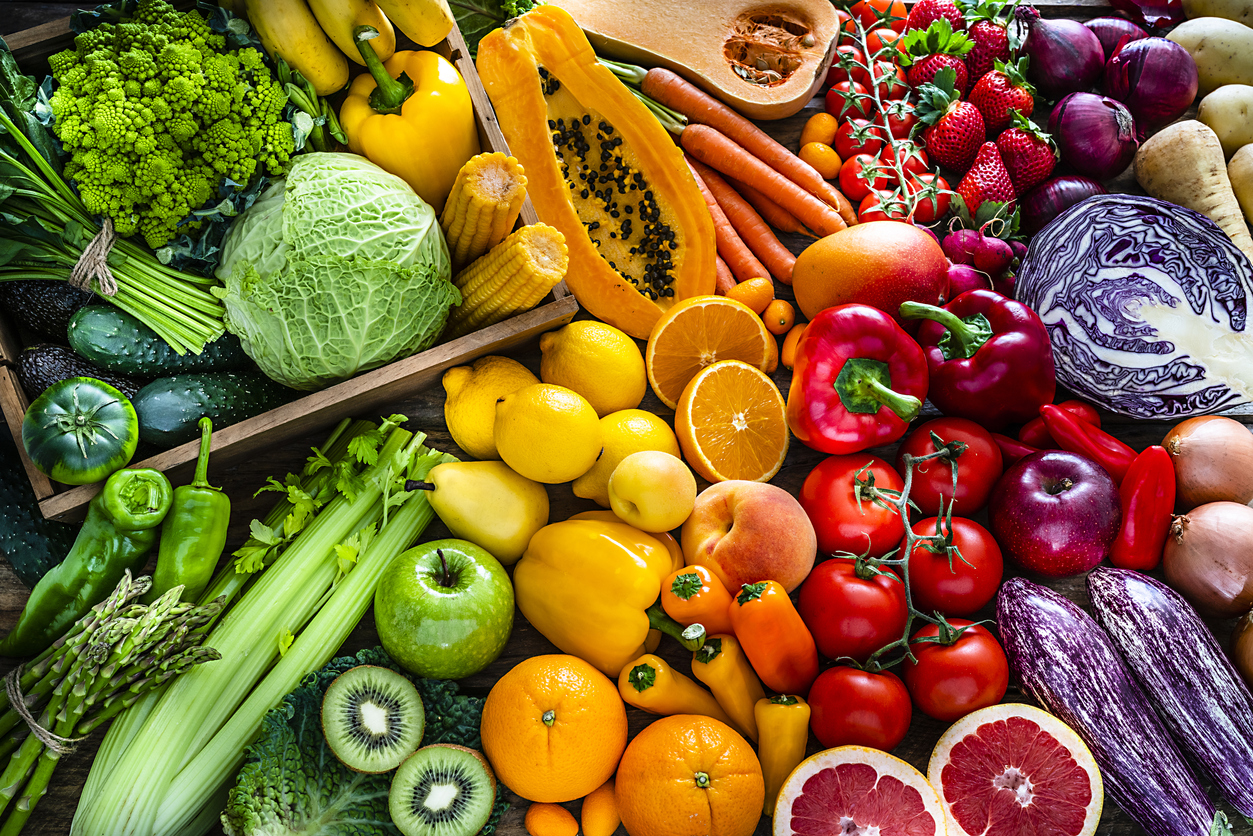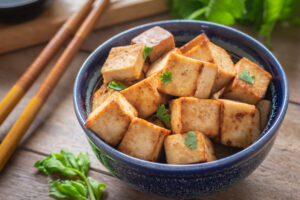The old saying goes, “you are what you eat.” In the case of a person following a vegan diet, that’s a very narrow definition. As some may remember from grade school science, there are three categories of food consumption: carnivores (meat-eaters), herbivores (plant eaters), and omnivores (both). Vegetarians fall into the category of herbivores and eat a diet free of meat. Unlike vegetarians, however, vegans don’t eat any animal products at all. They consume a diet comprised of foods made of only plant and plant-based products, which removes the option for eggs or dairy. Why would a person want to limit their diet so much? Perhaps taking a look at the potential health benefits will answer that question, and help you determine if it’s a diet worth considering.
Foods to eat
A vegan diet has more food options than you might think. A daily meal plan will include fresh fruits and vegetables, of course, but also beans, legumes, and nuts. But where certain foods aren’t allowed on a vegan diet, there are alternatives or imitation products available. For example, oftentimes meat options are replaced with a plant-based ‘meat’, or with cauliflower or cabbage steaks. There are vegan cheeses available on the market, as well as various types of milk (soy, almond, cashew, etc.).
One popular meat substitute is tofu. Tofu, also known as bean curd, is made of condensed soy milk that is pressed into solid blocks. The process is similar to how cheese is made, and the resulting product can vary in texture and density. Comparable to cheese, it can be silky soft or firm and hard, depending on how it’s made. Because tofu has such a mild flavor, it works well in a myriad of dishes and oftentimes takes on the flavor of whatever herbs and spices you add.
Popular fast-food restaurants have even jumped on the vegan train by creating plant-based burgers, though I think there would be a lot of people out there denying it’s a truly vegan option. So where the initial impression might be that a vegan diet is comprised of only salads and veggie trays, it turns out there’s a wealth of options available.
Health Benefits
There are many benefits to eating a vegan diet. To start, it has been known to boost your metabolism and help you on a weight-loss journey. Vegans tend to be thinner, have lower blood pressure, and have lower cholesterol. You also have the chance of improved cardiovascular performance, and there are indications that a vegan diet can lessen your chances of getting cancer. The vegan approach has also been shown to increase your brainpower.
The science behind a lot of the health benefits goes back to the nutritional makeup of the foods ingested and, equally important, the foods avoided. When looking at the nutritional content of a common vegan diet, you’ll see there’s an increased level of phytochemicals, which are known to benefit your mental health. These are derived from a large number of fresh fruits and vegetables included in daily meal plans.
Vegan diets also tend to have a higher intake of fiber, which helps to lower your cholesterol levels. The combination of fiber and antioxidants helps to lower your chance of developing cardiovascular disease.
Environmental Benefits
The benefits of a vegan diet aren’t only physical, but they are environmental as well. Vegan diets are thought to help conserve water and soil, as well as increase the level of fish in the ocean. This promotes a more even balance to the oceanic ecosystem. Vegan diets are also thought to help conserve energy because of the amount of power it takes to raise livestock.
Side Effects
While the benefits are sounding pretty good, there are also drawbacks to a vegan lifestyle. Among the negatives are the deficiencies you’ll find in your diet. While you’ll typically take in more nutrients on a daily basis, the vegan diet leaves you with protein and iron deficiencies because of the lack of meat in your daily meals. Protein is the building block of our body so having an inadequate amount for building muscle and tissue can lead to issues with your hair, skin, and nails, as well as risks for bone fractures.
You might also find that you have a lower level of vitamin B12, which is not as common in a plant-based diet as one that includes meat. This can cause extreme fatigue, weight loss, or anemia if not treated early. You might also find yourself with lower amounts of calcium and vitamin D, which again can lead to fatigue, confusion, or issues with your skin and nails.
What’s Right for You?
A vegan diet works well for many people around the world. Some decided to take that route for health reasons; some made the decision for ethical reasons. Whatever your reason may be, the decision is a personal one. The plus is that if you try it and don’t like it you can easily go back to your previous eating habits. Either way, consult with a doctor before making any dramatic changes to your diet to make sure it’s the healthy choice for you.
If you want to give the vegan diet or the Mediterranean diet a try, the new PLATE app offers you both versions. In the vegan choices, you will find extra care has been taken to have generous portions of food that will supply your protein needs. The regular PLATE meal suggestions follow the Mediterranean diet while ensuring adequate protein and limiting portion sizes. Either program is a great option to help you lose weight and be healthier.
Read Next:









